The Greek Way
The Mediterranean Diet is prescribed by many doctors and dieticians as one of the healthiest. Just this year, it was selected for the fifth year in a row as the healthiest diet in the world by a panel of experts assembled by U.S. News and World Reports. But is it? This diet that I was born into and grew up with actually tied with the DASH diet, which (for me) is not one of the healthiest. So, what's going on here?
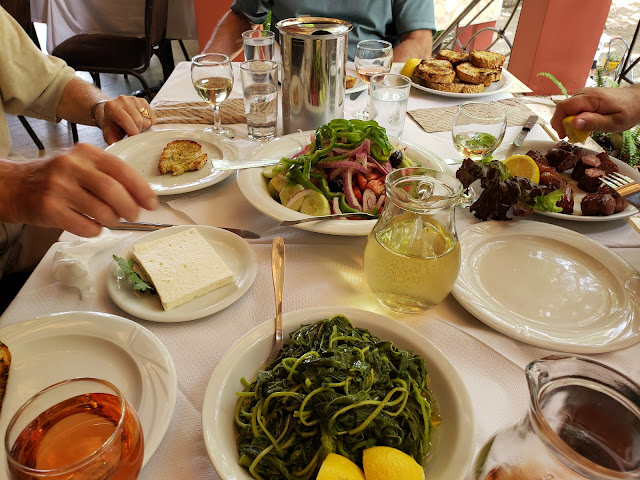 |
| Typical spread at a Greek table. This was just last summer in a high mountain village about 30 minutes from Sparta. It's worth the drive up the winding mountain roads just to eat at Koukounari Taverna managed by Iphigenia Glimpi. |
I am not a dietician. Let's be clear about this. I am an informed individual who has experience with the Greek version of the Mediterranean Diet and who believes that a diet is more than extracting parts of something that works in one region of the world and adding it to the lifestyle of people in another part of the world. I just don't believe that eating a 3-ounce boneless, skinless, previously frozen chicken breast is the authentic Mediterranean diet. I don't buy it! For me, a diet (what we ingest as delicious fuel for our bodies) is one part of a larger picture. Just as Yoga is a lifestyle and not only a series of body poses, so is the Mediterranean way of life, which includes a healthy way of eating, more than what we eat. This is why I support and sometimes write for The Mediterranean Lifestyle magazine. They promote the seven essentials of this lifestyle.
THIS BOWL OF VEGETABLES WITH LEMON JUICE AND OLIVE OIL OR...
THIS PLATTER OF GRILLED MEAT?
THE CORRECT RESPONSE IS...BOTH!!!
The Greek version of the Mediterranean diet promotes a lifestyle that includes eating home-grown vegetables, using a great deal of extra-virgin olive oil, eating outdoors as much as possible and spending time outside. Eating lots and lots of feta cheese, olives and pickled vegetables is important. Dessert is not an everyday experience. Pastries like baklava and dishes with lamb, beef and pork are enjoyed on religious feast days and at big life events such as baptisms and weddings. Most Greeeks will enjoy fruit for an afternoon snack or a couple of hours after dinner. The Greek Way promotes seasonal eating and foraging for wild greens, herbs and teas.
 |
| Eating outside under the plane trees at Saint John just minutes from Sparta |
The Greek Way is heavy on connections--being with people and building strong, lifelong relationships. Community is important, especially with church. While most Greeks are spotty with their religious education, they abide by the fasting and feasting calendar of the Greek Orthodox church. In the West, we are only recently understanding the importance of intermittent fasting, but in Greece, it's woven into the daily life of every Greek. In this way, in part because of the expense of eating meat, and in part due to the religious practice of fasting, most Greek people eat vegetable-forward meals during the week with a chicken, fish or pork dish on the weekend. Beef and lamb are typically celebration meals--part of a lavish feasting table--like Easter.
 |
| Fish is grilled whole and eaten with the skin on during Lent and afterward. |
Greeks eat meat! Lots of yummy fat-laced meat, but they don't eat it often. And when they enjoy a fabulous feast, they balance their eating with a plate full of wild greens and assorted vegetables topped with a generous dousing of fresh lemon juice and an overly generous amount of extra-virgin olive oil the next day or for the next few days. We Greeks don't eat Greek restaurant food every day of the year. We do eat eggs, full-fat yogurt, full-fat milk (but not much), beans and pulses, and mostly feta, which is a healthier cheese when made with sheep or sheep and goat milk, so read those labels.
Greek Way Workouts. I don't know a lot of Greeks (in Greece) who work out extensively the way we think of working out in the West. But, all Greeks love to go for a walk and they all love to dance! Walking and talking can be done after dinner as you stroll up and down the town square, so you've got exercise and socialization going on. And, if you've ever caught someone's hand and followed them, one-two-three-kick-style in a circle, you know what an outstanding aerobic workout the traditional Greek dances can be! Sometimes I turn on the Greek music and dance around the furniture in my kitchen and living room!
 |
| My aunt showing us her flowers and vegetables that she maintains. |
Lenten Season. The great fast, as it is known, has begun. Most Greeks will not eat meat again until April 24th--Easter Sunday. Does that sound difficult? Of course, but in reality, we have so many wonderful one-pot dishes to eat day after day without repeating the dish. I have many such recipes throughout my blog that you can try. Maybe you will join us in The Greek Way. Eat more in-season vegetables boiled and dressed with good olive oil and lemon juice or stewed simply with onion and tomatoes. Roast a fish and accompany it with a huge salad dressed with vinegar and olive oil. Maybe eat just foraged greens one day a week or a bowl of bean soup. Dunk a piece of bread into the medicinal pot or pan juices, take a bite of feta cheese and a sip of wine. Wash the dishes, then go for a long walk with someone whose company pleases you. Sleep well. Live long.
 |
| Stewed black-eyed peas with greens. |
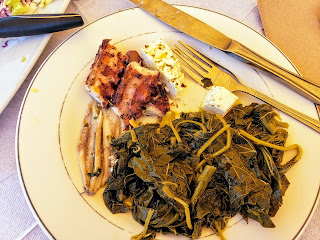 |
| Restaurant plate: grilled octopus, marinated fresh anchovies, feta, greens |
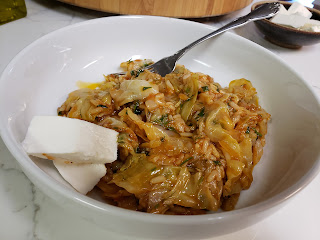 |
| Cabbage, tomatoes, onions, olive oil, rice. Unbelievably delicious one-pot meal. |
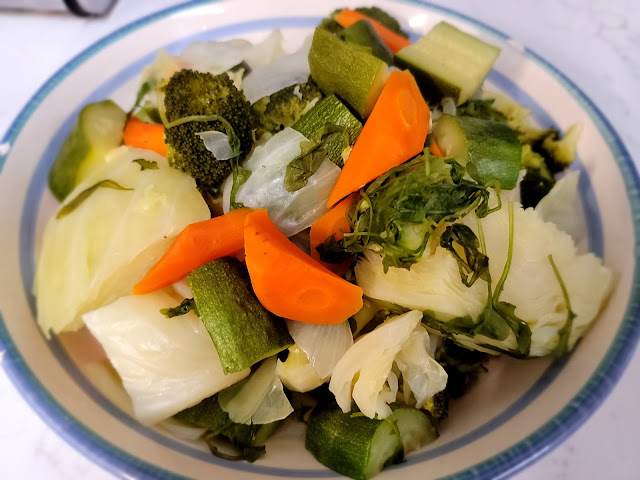

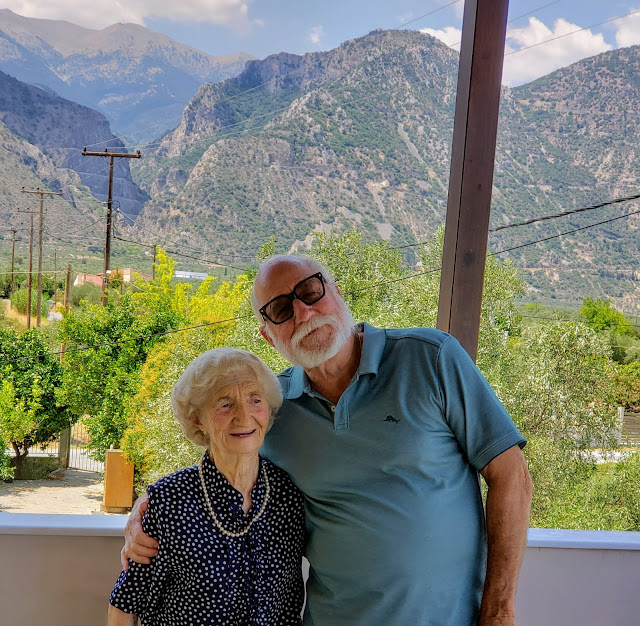
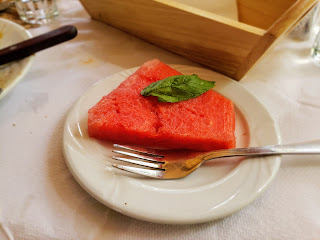

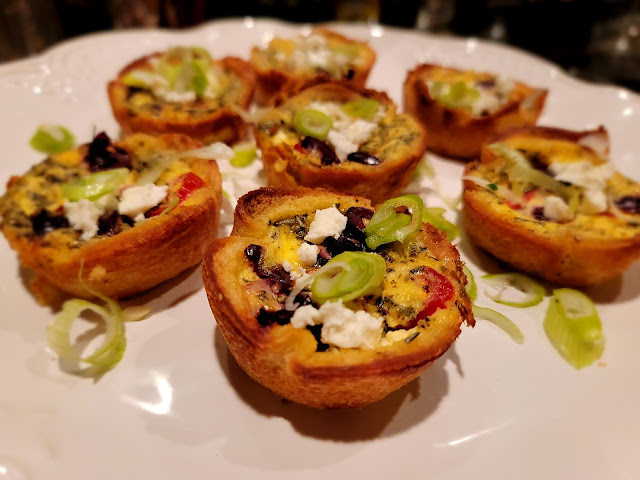
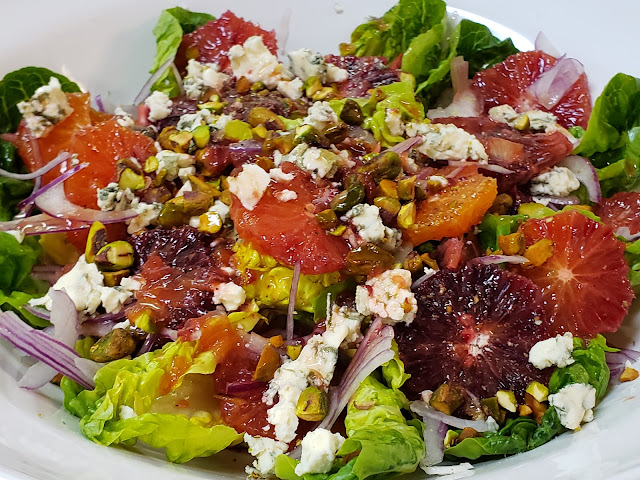

.jpg)
Comments
Post a Comment